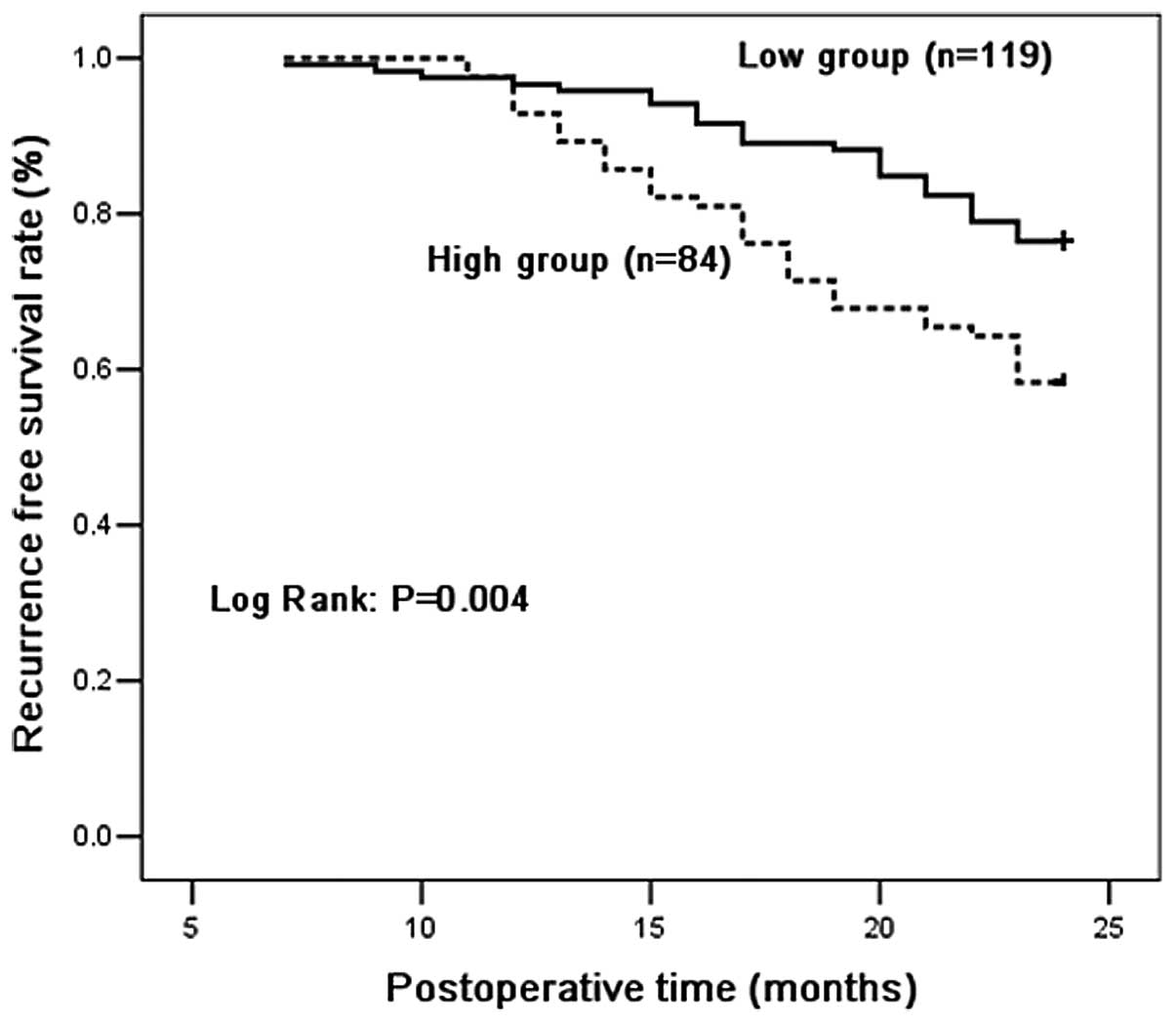|
1
|
Parkin DM, Bray F, Ferlay J and Pisani P:
Global cancer statistics, 2002. CA Cancer J Clin. 55:74–108.
2005.
|
|
2
|
Goya T, Asamura H, Yoshimura H, et al;
Japanese Joint Committee of Lung Cancer Registry. Prognosis of 6644
resected non-small cell lung cancers in Japan: A Japanese lung
cancer registry study. Lung Cancer. 50:227–234. 2005.
|
|
3
|
Mountain CF: Revisions in the
International System for Staging Lung Cancer. Chest. 111:1710–1717.
1997.
|
|
4
|
Scagliotti GV and Novello S: Adjuvant
therapy in completely resected non-small-cell lung cancer. Curr
Oncol Rep. 5:318–325. 2003.
|
|
5
|
Choi YS, Shim YM, Kim K and Kim J: Pattern
of recurrence after curative resection of local (stage I and II)
non-small cell lung cancer: difference according to the histologic
type. J Korean Med Sci. 19:674–676. 2004.
|
|
6
|
Hjelde H, Sundstrøm S, Ødegård A, et al:
Recurrence and survival after surgical treatment of lung cancer.
Tidsskr Nor Laegeforen. 130:25–28. 2010.(In Norwegian).
|
|
7
|
Jiang J, Goel R, Schmechel S, et al:
Pre-conditioning cryosurgery: Cellular and molecular mechanisms and
dynamics of tnf-α enhanced cryotherapy in an in vivo prostate
cancer model system. Cryobiology. 61:280–288. 2010.
|
|
8
|
Ghadjar P, Rubie C, Aebersold DM and
Keilholz U: The chemokine CCL20 and its receptor CCR6 in human
malignancy with focus on colorectal cancer. Int J Cancer.
125:741–745. 2009.
|
|
9
|
Schutyser E, Struyf S and Van Damme J: The
CC chemokine CCL20 and its receptor CCR6. Cytokine Growth Factor
Rev. 14:409–426. 2003.
|
|
10
|
Brand S, Olszak T, Beigel F, et al: Cell
differentiation dependent expressed CCR6 mediates ERK-1/2,
SAPK/JNK, and Akt signaling resulting in proliferation and
migration of colorectal cancer cells. J Cell Biochem. 97:709–723.
2006.
|
|
11
|
Rubie C, Frick VO, Ghadjar P, et al:
CCL20/CCR6 expression profile in pancreatic cancer. J Transl Med.
8:452010.
|
|
12
|
Ghadjar P, Loddenkemper C, Coupland SE, et
al: Chemokine receptor CCR6 expression level and aggressiveness of
prostate cancer. J Cancer Res Clin Oncol. 134:1181–1189. 2008.
|
|
13
|
Chang KP, Hao SP, Chang JH, et al:
Macrophage inflammatory protein-3alpha is a novel serum marker for
nasopharyngeal carcinoma detection and prediction of treatment
outcomes. Clin Cancer Res. 14:6979–6987. 2008.
|
|
14
|
Rubie C, Frick VO, Wagner M, et al:
Enhanced expression and clinical significance of CC-chemokine MIP-3
alpha in hepatocellular carcinoma. Scand J Immunol. 63:468–477.
2006.
|
|
15
|
Fujii H, Itoh Y, Yamaguchi K, et al:
Chemokine CCL20 enhances the growth of HuH7 cells via
phosphorylation of p44/42 MAPK in vitro. Biochem Biophys Res
Commun. 322:1052–1058. 2004.
|
|
16
|
Liu J, Zhang N, Li Q, et al:
Tumor-associated macrophages recruit CCR6+ regulatory T
cells and promote the development of colorectal cancer via
enhancing CCL20 production in mice. PLoS One. 6:e194952011.
|
|
17
|
Slettenaar VI and Wilson JL: The chemokine
network: a target in cancer biology? Adv Drug Deliv Rev.
58:962–974. 2006.
|
|
18
|
Tsai ST, Chien IH, Shen WH, et al: ENO1, a
potential prognostic head and neck cancer marker, promotes
transformation partly via chemokine CCL20 induction. Eur J Cancer.
46:1712–1723. 2010.
|
|
19
|
Lee HJ, Jo J, Son DS, et al: Predicting
recurrence using the clinical factors of patients with non-small
cell lung cancer after curative resection. J Korean Med Sci.
24:824–830. 2009.
|
|
20
|
Kirshberg S, Izhar U, Amir G, et al:
Involvement of CCR6/CCL20/IL-17 axis in NSCLC disease progression.
PLoS One. 6:e248562011.
|
|
21
|
Iwata T, Tanaka K, Inoue Y, et al:
Macrophage inflammatory protein-3 alpha (MIP-3α) is a novel serum
prognostic marker in patients with colorectal cancer. J Surg Oncol.
107:160–166. 2013.
|















